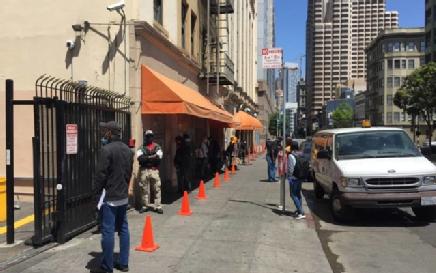
It began with an online workshop co-hosted by the Centre for Interdisciplinary Methodologies (University of Warwick) and the Digital Humanities Department (Kings College London) in June 2020 where we turned to Twitter to examine situational contraints on testing for Covid (“No phone.”). Now our paper on the testing situations that (not) testing for Covid gave rise to on Twitter across scales during the first three months of the pandemic is out in Social Media + Society. We have come some way, and would never have been able to continue let alone complete this work without the brilliant contributions of all our workshop participants over the years.
with Carolin Gerlitz, Jonathan Gray, Liliana Bounegru, Gabriele Colombo and James Tripp
Social Media + Society (2023)
How was testing—and not testing—for coronavirus articulated as a testing situation on social media in the Spring of 2020? Our study examines everyday situations of Covid-19 testing by analyzing a large corpus of Twitter data collected during the first 2 months of the pandemic. Adopting a sociological definition of testing situations, as moments in which it is no longer possible to go on in the usual way, we show how social media analysis can be used to surface a range of such situations across scales, from the individual to the societal. Practicing a form of large-scale data exploration we call “interpretative querying” within the framework of situational analysis, we delineated two types of coronavirus testing situations: those involving locations of testing and those involving relations. Using lexicon analysis and composite image analysis, we then determined what composes the two types of testing situations on Twitter during the relevant period. Our analysis shows that contrary to the focus on individual responsibility in UK government discourse on Covid-19 testing, English-language Twitter reporting on coronavirus testing at the time thematized collective relations. By a variety of means, including in-memoriam portraits and infographics, this discourse rendered explicit challenges to societal relations and arrangements arising from situations of testing and not testing for Covid-19 and highlighted the multifaceted ways in which situations of corona testing amplified asymmetrical distributions of harms and benefits between different social groupings, and between citizens and state, during the first months of the pandemic.
